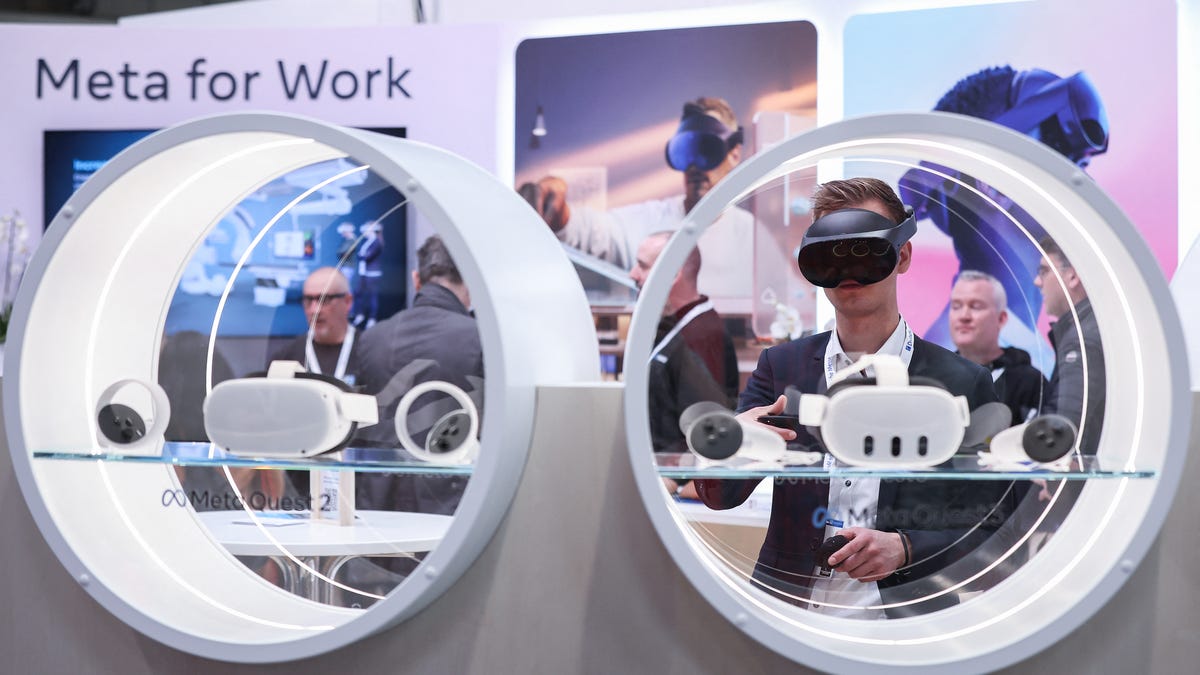Meta CEO Mark Zuckerberg and Apple chief Tim Cook are still hyped up on virtual reality, even if consumers aren’t all excited about their headsets.
Apple’s Vision Pro hasn’t struck a chord with customers. Sales of the premiere mixed-reality headsets released by the company in February slumped in the months that followed, and some Apple stores are reportedly selling just a handful of the products every week. Meanwhile Meta’s Metaverse division, Reality Labs, is still losing billions of dollars on Mark Zuckerberg’s bet on a future filled with 3D digital worlds.
But Cook and Zuckerberg are shrugging off the failures. In fact, they’re doubling down on VR: Both tech tycoons spotlighted their respective companies’ headsets during recent earnings calls with investors.
“In addition to our work on AI, our other long-term focus is the metaverse,” Zuckerberg said, adding later that Meta is “making steady progress building the metaverse.” Meta certainly has reason to be hopeful: Reality Labs’ $3.8 billion loss during the first quarter, while large, have shrunk considerably from last quarter (17%).
Cook also touted the opportunities over Apple’s $3,500 headsets — and true to form, was careful to avoid the word “metaverse.” In a call with investors, he discussed “the magic of spatial computing” and the “profound and emotional experience of using it for the very first time.”
“More than half of the Fortune 100 companies have already bought Apple Vision Pro units and are exploring innovative ways to use it to do things that weren’t possible before,” Cook said. “I see enormous opportunity in the enterprise [market].”
It’s true: headsets may have better luck with enterprise customers than the consumer market. While the hype phase for virtual worlds and the headsets needed to access them has mostly ended, businesses like Intel, Wells Fargo, Volkswagen and Walmart have adopted the products. And their uses aren’t about building a business line in a digital world — rather, they’ve picked up the products for real-world benefits, like workplace training. Those businesses might just help push VR headsets out of a slump and into the mainstream — but that will probably take a while.

Maria Malik is your guide to the immersive world of Virtual Reality (VR). With a passion for VR technology, she explores the latest VR headsets, applications, and experiences, providing readers with in-depth reviews, industry insights, and a glimpse into the future of virtual experiences.


